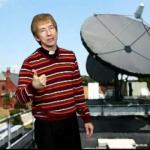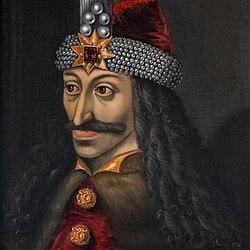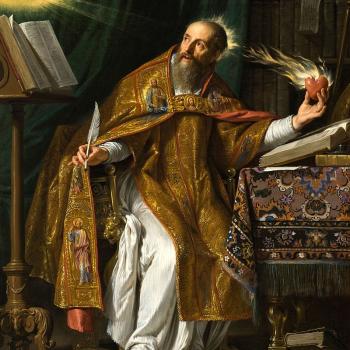More history to ruin your Thanksgiving spirit: There were no sweet potatoes (not native to North America), cranberry sauce (no sugar available), or pumpkin pies (no butter or flour around for the crusts) either. So what was on the menu besides herons? Probably fish, eel, and perhaps a few garden vegetables like collard greens, parsnips, and turnips. The setting wasn’t conducive to a fancy feast either. Tables and chairs were scarce. The Pilgrims probably didn’t have knives, or even forks, which were dismissed by the middling folk of England as a “foppish pretension.”
So if you really want to be authentic tomorrow, eat some eel and turnips while sitting cross-legged on the cold ground.
Eating Eel: Your Guide to an Authentic Thanksgiving (NOVEMBER 25, 2015) | David Swartz (patheos.com)
To bring the world back to Christ, we must first desire His presence in our own lives. As Catholics, it is through our love for God that we desire to share it with others – those close to us and those who are strangers. It is through this that Christ’s love can be shared with the world. So, no matter the season of life, it is through relationships that we grow personally and spiritually. Let’s find the dinner table as the place for unification – a place of peace, joy, and a way to separate ourselves from the trials of the world, even if only for a small moment. These are the memories we will cleave to in the future and the moments that our children will desire to pass down to future generations. It is God’s desire that we foster connections with each other, to ultimately, foster our connection with Him.
Danielle Heckenkamp– Fostering Charity Around the Dinner Table (November 24, 2022) OnePeterFive
On this Thanksgiving, then, it remains our obligation to not only give thanks, but like the ‘Samaritan leper’ and ‘the Divine Jew’ of biblical times, cooperate to overcome hate and heal divisions. I believe that America – a nation that that ended slavery, a nation that intervened globally to end the tyranny of fascist Nazism, a nation that welcomed foreigners from every corner of the world and yet weaved them into a single fabric, a nation that overcame the horrendous terrorist attack on Sept 11, 2001 – can once again come together to heal the racial, social and political rifts that divide her. Let us ensure that we can be that nation which ensures life, liberty, and the pursuit of happiness for all. It is within our national character to accomplish this task.
As Catholic Americans we celebrate the Eucharist. Eucharist means ‘thanksgiving,’ and Catholic means ‘universal.’ This means, then, that we offer thanks as a diverse yet universal people that bears witness to God’s gift of salvation to all. May God accept our gratitude and may God hear our prayer for unity, peace, and goodwill.
· Still, A Time to Give Thanks –(NOVEMBER 26, 2020) Where Peter Is
The Thanksgiving meal celebrated by the pilgrims, the settlers in Canada and earlier by Spanish settlers in Florida had its roots in well-established European harvest time traditions. When I moved to England I was delighted to find that, although they didn’t celebrate Thanksgiving as such, most Anglican parishes celebrated Harvest Festival in the Autumn. The church would be decorated with autumn flowers, colorful pumpkins, squash and everyone would bring tinned goods to be distributed to the poor. Some of them joked that this was their Thanksgiving — giving thanks that they had got rid of all those troublesome Puritans. So still the English celebrate harvest festival — a medieval custom which somehow survived the stripping of the altars. This treasured tradition, however, has deeper roots which the Protestants first rejected, then forgot. Fr. Dwight Longenecker The Theology of Thanksgiving (November 24, 2022) Crisis Magazine
It seems we aren’t simply homo sapiens (thinkers) after all. Please excuse what must be rotten Latin, but you and I are more like homo colligentes: folks who gather. We could also use the term qui ecclesiam, Latin slang for “them who church.” That’s what church is: a society of believers who choose to gather together. That’s why we have a hundred different versions of gathering songs to start the Mass. It’s what we do.
So I hope and pray that you and I are gathering around Thanksgiving tables this month and Christmas trees next month. I hope we continue to assemble around altars and sing glorias every Sunday we get the chance. Let’s encircle snow-folk sculpted in parks while we belt out carols we all know by heart. Wouldn’t it be a miracle if we could pop bottles of champagne on New Year’s Eve in crowded places and do what human beings are meant to do: share the experience of life? Participating in the lives of loved ones and strangers makes us whole, heals, revives, and encourages us. May God bless us with the savor-worthy experiences of talking, laughing, arguing, and agreeing—all within the same conversation and the same room.
“In these times Thanksgiving Day is no longer a solemn festival to God for mercies given,” reported the New York Herald in 1893. “It is a holiday granted by the State and the nation to see a game of football.”
How the First Thanksgiving College Football Game Kicked Off a Holiday Tradition – HISTORY












